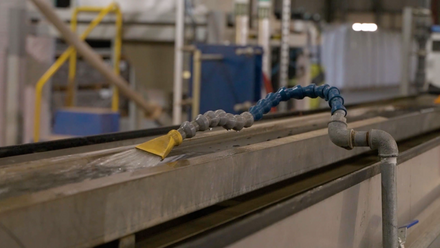Manufacturers warn UK's Industrial Strategy will be flawed unless energy costs addressed
Make UK states UK energy costs, 46% above the global average, risk undermining the upcoming Industrial Strategy.

Make UK, the representative voice of UK manufacturing, believes Ministers should remove what they describe as ‘regressive policy levies’ from energy bills to cut costs.
These statements come as the Tackling Industrial Energy Costs report is published by Make UK to offer solutions to government. Make UK says it is both deliverable and costed.
It is calling for the creation of a fixed electricity price to put British manufacturers on a level playing field with international competitors.
In this proposed scenario, government would agree a fixed price for manufacturing (a Contract for Difference). If the GB wholesale price went above the fixed price, government would pay manufacturers and subsidise their energy costs. If it went below the fixed price, manufacturers would pay back the difference to government.
Make UK sees this as necessary to allow the Industrial Strategy to tackle what it sees as domestic weakness to stimulate economic growth.
It states one of the main reasons for high electricity prices for UK industry, compared to European counterparts, is the decision to place most policy levies directly onto electricity bills.
Make UK recommends the electricity price £56/MWh, ‘which equates to a 10% reduction in retail prices paid by manufacturers’. It believes when the savings are added to those gained by removing the policy levies from bills, UK manufacturers would be on a par with European industrial energy bills.
It states removing the policy levies would cut energy costs for manufacturers by 15%.
In doing so, it is believed it will ‘unleash UK manufacturing’s full potential in driving growth and commit to electrifying industry’.
Make UK based the analysis on two pieces of published Office for Budget Responsibility work. First, their assessment of the supply-side consequences of changes in oil and gas prices (tailored to industrial electricity prices), and second, their model of how the economic capital stock adjusts to changes in corporation tax rates.
Stephen Phipson, CEO Make UK, says, ‘If we do not address the issue of high industrial energy costs in the UK as a priority, we risk the security of our country. We will fail to attract investment in the manufacturing sector and will rapidly enter a phase of renewed de-industrialisation.’
The full Tackling Industrial Energy Costs report is available online.







